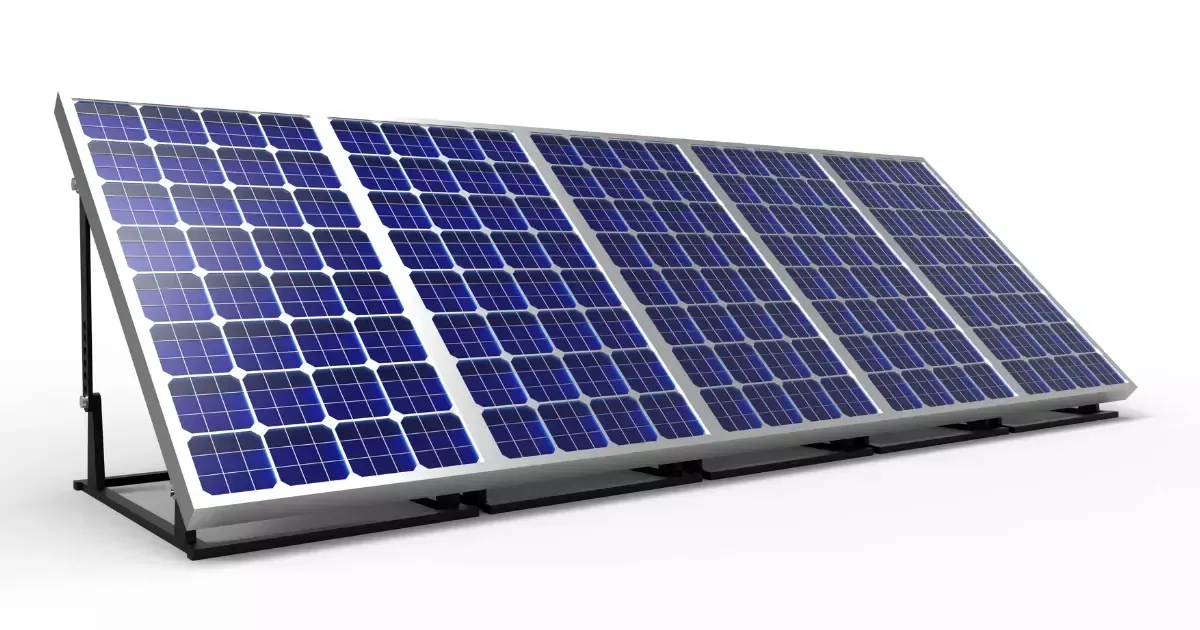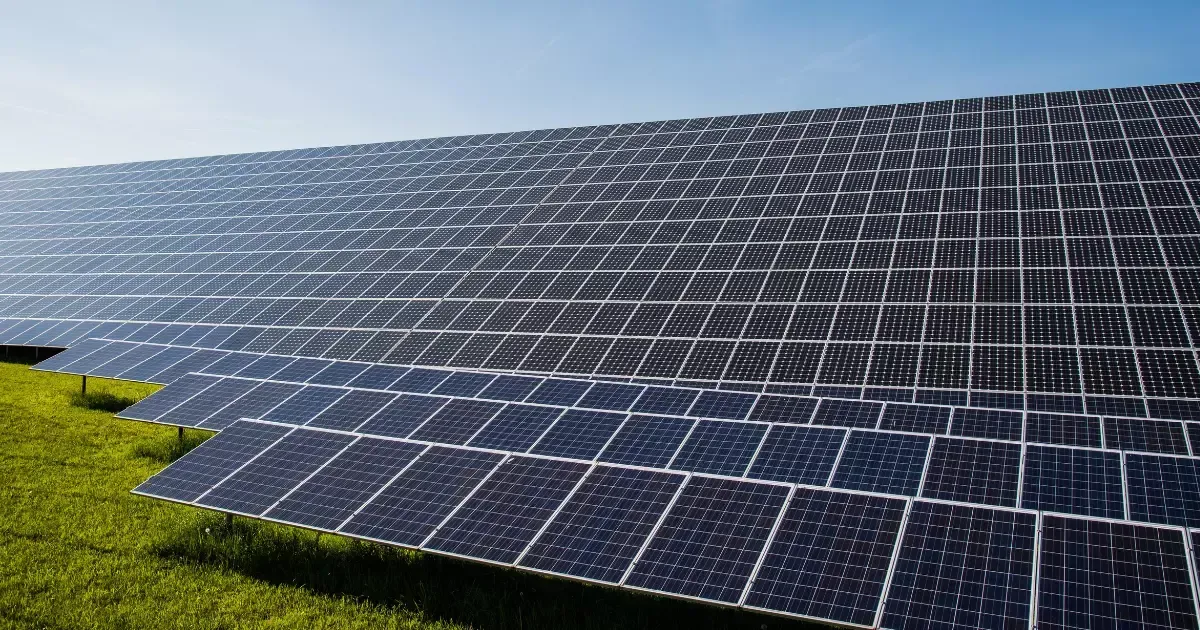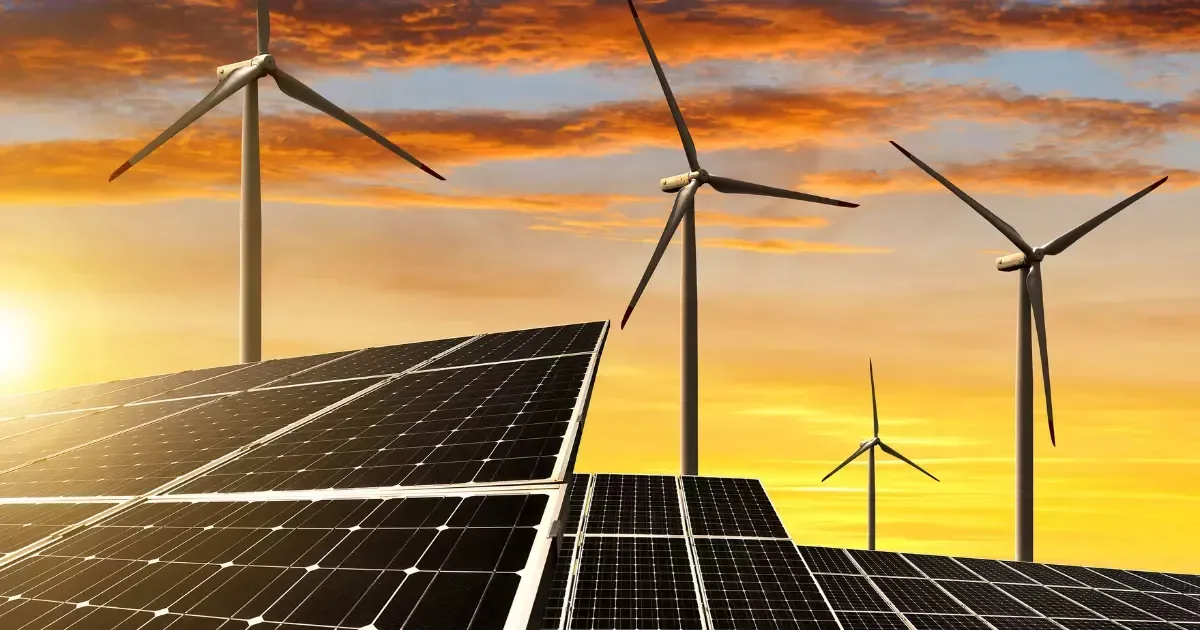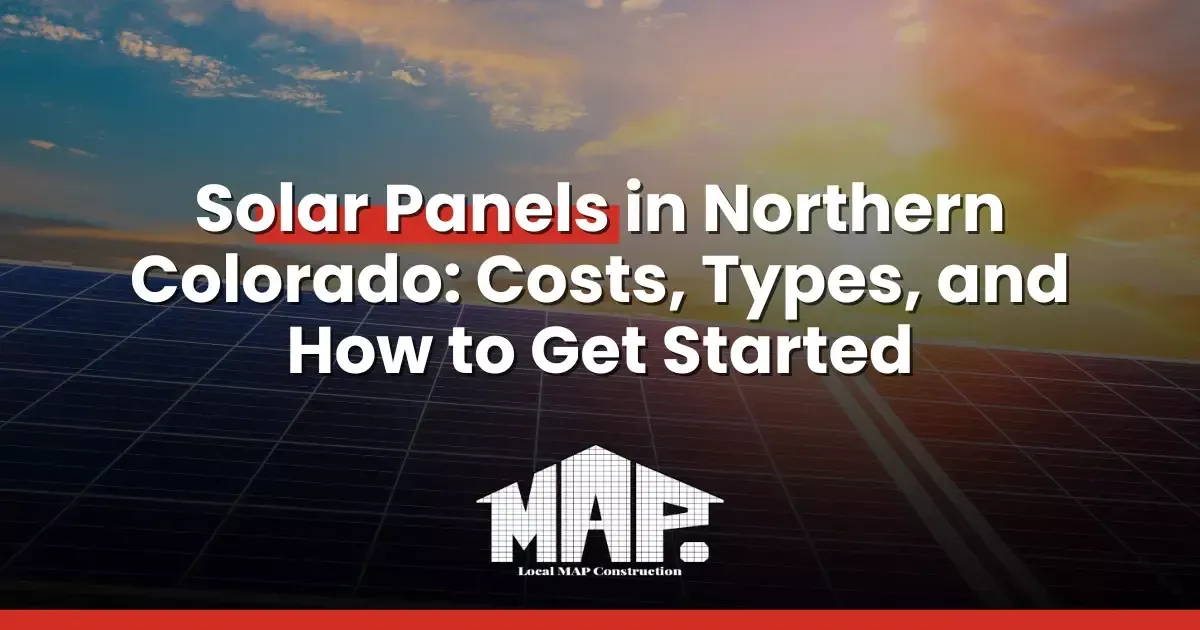Solar Panel Costs and Benefits in Northern Colorado
Solar panels are a source of energy that turns sunlight into electricity, helping lower your bills and supporting the environment. They use photovoltaic cells to make power for your home or to send extra energy back to the grid. You can choose from types like monocrystalline or polycrystalline for your panel. If you're wondering about the benefits and what to think about before buying, there's still more to learn.
What Is a Solar Panel?

It is a device that converts sunlight into electricity, making it a key player in renewable energy. You’ll find that these panels harness solar energy through photovoltaic cells, turning light into solar power.
Solar Energy Conversion
Solar arrays play an important role in converting sunlight into usable energy. They’re essential components of solar energy systems, using photovoltaic technologies to maximize energy output. This process enhances solar power generation, allowing you to achieve energy independence. By harnessing clean energy, you can avoid falling for a clean energy scam and can also lower your electricity bills.
How Do Solar Panels Work?
When sunlight hits the panels, it gets converted into electricity, thanks to photovoltaic cells. These cells absorb the sun's energy and create a flow of electricity that can power your home or feed into the electric grid. Understanding this process can help you appreciate the technology behind solar energy.
Sunlight to Electricity Breakdown
Understanding how sunlight transforms into electricity through solar systems involves key processes. The type of solar panel you choose, like monocrystalline panels, affects energy efficiency and power output. As sunlight hits the panels, it generates electricity, helping reduce your energy consumption. When considering energy efficiency upgrades, check the power output warranty to ensure long-term performance.
Photovoltaic Cells
Photovoltaic cells are the key part of your energy system. They turn sunlight into electricity. These cells come in different types, like silicon cells, first-generation cells, and thin-film solar cells. Some systems use half-cut solar cells to make more energy by cutting down power loss. Understanding these options helps you choose the right solar technology for your needs.
Electric Grid
As sunlight hits your panel system, the photovoltaic cells convert it into direct current electricity, which then travels to an inverter. This inverter transforms the DC into alternating current for your electricity systems. With a solar system setup, you can lower your electric bills. Think about battery storage options so you have backup power when needed. Always choose a qualified installer to get the best results, especially if you're using a power purchase agreement.
Types of Solar Panels

When you're looking into solar panels, you’ll find three main types to choose from: monocrystalline, polycrystalline, and thin-film. Each one works a little differently and has its advantages and disadvantages. Some are better if you want more power in a smaller space, while others may cost less but take up more room. The kind you pick can change how much energy you get and how much you spend.
Monocrystalline
Monocrystalline panels are a popular choice because they work well and look nice. They often come with higher up-front costs, but they can save you more money over time. Thanks to new solar design technology and better market interest rates, cost comparisons show that monocrystalline can be a smart pick for your solar business investment.
Polycrystalline
Polycrystalline cells are another popular option for using solar energy because of their affordability and particular blue hue. As a cost-effective choice, they often have a lower price per kilowatt compared to monocrystalline panels. Many rooftop panel installations use polycrystalline technology, helping you reduce electricity bills.
Thin-film
While many options exist, thin-film panels stand out for their lightweight design and flexibility. Energy system owners like that these panels work well with power electronics, making them a good fit for many setups. Many solar companies suggest thin-film for roof mount solar kits and battery backup solar kits because they help save energy without adding too much weight to your roof.
How Much Do Solar Panels Cost?
When considering a solar array, you'll want to understand the price range for residential installations. You also need to think about the return on investment and long-term energy savings you can expect. Knowing these factors can help you make an informed decision.
Price range for residential installations
Solar installation for your home usually costs between $15,000 and $30,000. The price depends on things like system size, where you live, and how hard it is to set up. The unit price for each part can change, and adding a battery bank can raise the total. To help with costs, many people use solar energy loans to cover the price and make monthly loan payments. A trusted solar installer can guide you through the process. Additionally, if you plan to add a battery bank, the unit price will increase, so consult your solar installer for accurate estimates.
Return on Investment
Understanding the return on investment for a solar system can impact your decision to go solar. Reducing your electrical loads and utilizing energy storage systems can boost your ROI. Investing in smart modules ensures compliance with electrical codes and maximizes efficiency. Many private companies offer financing options, making it easier to reap the benefits of solar energy sooner.
Long-Term Energy Savings
Even though getting started can cost a lot, using energy from the sun can help you save money over time, making it a smart choice for many homeowners. A 1000-watt solar panel can lower your electrical charge by a lot, especially when used with power optimizers. Over time, you may reach complete energy independence and stop paying metering payments. This can help you save money on your power bills for many years.
What Are the Benefits of Solar Panels?

When you start using solar energy, you can see your power bills go down quickly. Not only that, but you'll also be making a positive impact on the environment by reducing your carbon footprint. The advantage can impact both the homeowners and the environment.
Lower Energy Bills
Choosing a solar energy system can help cut down on monthly power bills while increasing home value. By installing rooftop panels, you harness sunlight to reduce dependence on the grid. Mono panels are efficient, and with energy storage solutions, you can save excess energy for later use. Using individual inverters further upgrades your system, ensuring you maximize savings and enjoy lower monthly energy costs.
Environmental Impact
Solar technology reduces reliance on fossil fuels, lowering greenhouse gas emissions. Building-integrated photovoltaics and thermal panels help make homes more energy efficient. New tools and systems also help lower the cost of using solar energy over time. Solar energy is better for the planet and supports a cleaner, greener future for everyone.
What to Consider Before Buying?
It's important to assess your roof's condition and how much sun it gets throughout the day before buying any solar technology. You'll also need to look into permits and installation timelines, as these can affect your decision. Also, choosing a trusted solar provider can make all the difference in your overall experience.
Roof condition
Your roof plays an important role in determining whether solar power is a worthwhile investment. Assess your roof structure and ensure it’s in good condition, especially if you have south-facing roofs that maximize sunlight. Proper care can reduce future repair costs, impacting the final solar system costs. Remember, your roof must meet standard test conditions to harness activation energy for optimal performance.
Sun exposure
Understanding sun exposure is needed when considering panels for your home. You’ll want to assess how much direct sunlight your roof receives throughout the year. For instance, a 400-watt panel can be more effective in sunny areas. Also, consider panels with energy storage and string inverter solar kits for optimal energy production per hour of electricity produced.
Permits and installation timelines
When you're ready to invest in panel power energy, you'll need to plan the procedure for permits and installation timelines. Check local regulations, as they vary. You may need permits for structures or power plants. If you're installing battery storage in parallel with modules, that requires additional approvals. Choose the right road to streamline the process and ensure timely installation.
Choosing a trusted solar provider
How can you ensure you’re choosing the right solar provider? Start by researching their reputation, and check reviews and testimonials. Look for experience in the industry and a strong portfolio. Verify their licenses and certifications. Don't forget to compare quotes, but focus on quality over cost. Lastly, confirming they offer good warranties and customer service will make a significant difference in your solar investment.
How long do solar panels last?
When you invest in a solar system, it's important to know how long it'll last and what maintenance it'll require. Most panels have a lifespan of 25 years, but factors like warranty info can guide your expectations. Understanding these aspects helps you make an informed decision for the long term.
Maintenance
It typically lasts 25 to 30 years, making them a long-term investment for your energy needs. Regular maintenance is key to keeping them functioning efficiently. Clean the panels a couple of times a year to remove dirt and debris. Check for any shading or damage. Most importantly, schedule professional inspections to guarantee that everything’s working smoothly and maximize your investment.
Lifespan
Most panels have an impressive lifespan of 25 to 30 years, making them a solid choice for your energy needs. Over the years, they will still make electricity well, often keeping about 80% of their starting power even after decades. Choosing solar energy is a long-term move, giving you big savings on energy and helping the planet for many years.
Warranty Info
Many homeowners think about the upfront cost of a solar array, but knowing the warranty is just as important. Most solar arrays come with a 25-year promise to keep working well, so you know they will stay strong for a long time. Additionally, manufacturers often offer a 10- to 15-year warranty for product defects. Knowing these details helps you choose reliable panels and protects your investment over time.
Read also: 8 Reasons Businesses Choose Commercial Solar Panels Today
Frequently Asked Questions
Can Solar Panels Work in Cloudy or Rainy Weather?
Yes, it can still generate electricity in cloudy or rainy weather. They are made to catch soft sunlight, so even when it’s cloudy, you still get energy production, just not as much as on sunny days.
How Do I Maintain My Solar Panels?
Regularly clean them to remove dirt and debris for maintenance. Look around for shade from trees, and plan expert checkups to make sure everything is working well and staying safe.
Are There Government Incentives for Installing Solar Panels?
Yes, there are government incentives for panel installation. You can benefit from tax credits, rebates, and grants that help offset the initial costs. Check your local and federal programs for the latest offerings and eligibility.
Can it Increase My Home’s Value?
Yes, installing panels can increase your home’s value. Potential buyers often see them as a long-term investment, reducing energy costs. This appeal can make your property more attractive in a competitive real estate market.
How Do I Choose an Installer?
Choosing an installer involves researching local companies, reading reviews, and comparing quotes. You should also look at their certifications and experience to confirm they give good service and use reliable tools for your home’s energy needs.
Wrapping Up
A solar panel is more than just a way to cut your power bill. It’s a smart choice that helps you save money, use clean energy, and support a better future. With the right system, you can enjoy long-term benefits and feel good about how you power your home.
AtLocal Map Construction, we make the process simple. We help homeowners acrossNorthern Colorado choose the best solar setup for their needs. From expert advice to trusted installers, our team is here to guide you every step of the way, without the stress of inconvenience. With Local Map, switching to clean energy is possible and easy.
Ready to start your solar journey with confidence? Call us today at (720) 635-2941. Regular maintenance is key to keeping them functioning efficiently

